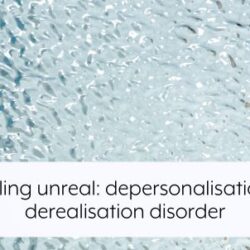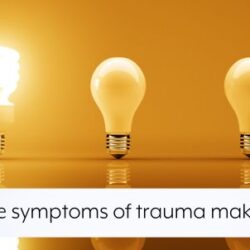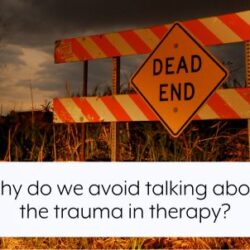
I was abused by my dad, and also my grandad. And in many ways, I want to just leave it there and not say any more, because every time I say it a huge cloud of fear comes up and a voice screams in my ear that none of it really happened. It’s like, for a moment, my heart falls into my feet and I’m overcome by this terror that I really am just making it up, and that there’s something terribly wrong with me that I would do such a thing. And then, usually seconds later – but sometimes it can be hours later – I remember the facts: that actually my father is in prison, that he did actually abuse me as well as other people, and so I’m not making it up at all. And yet I still wish I were, and it all feels that it happened somewhere else – somewhere outside the glass bubble that I live in most of the time.
I had a rocky childhood. The details are hazy but it seems that my mother had a mental breakdown shortly after I was born and was hospitalised. I went into foster care briefly, and then to my paternal grandparents. My grandad abused me then, and continued to do so whenever he had the chance until I was about 11. For the first five years of life, I flitted between foster care, my grandparents’ house, living alone with my dad, and living with both my parents. I can’t remember when the abuse by my dad started. It was just always part of knowing him. He also took me along to ‘parties’ where other men abused me too. I don’t remember the details, and I don’t want to remember them.
I grew up knowing, or rather believing, that there was something wrong with me. I never felt that I fitted in. I thought I was ‘weird’. I always thought that people were looking at me and judging me. I struggled to make friends because I never really trusted that anyone would want to be friends with me. I didn’t feel that I had the right to have friends, and I never wanted to bring friends home. I hung out with groups of girls at school where I tried to fit in by blending into the background and not drawing attention to myself. I downplayed all of my abilities in case I stood out – I didn’t want to be seen to be doing well, because I didn’t want to be seen at all. I remember scoring highly on one particular maths test in school. I came top of the class, and I was mortified. From then on I worked really hard to try to figure out how many questions to get wrong, to make sure I did well enough, but not too well. Secretly, I enjoyed maths, and I enjoyed being at school, because it was such a welcome break from being at home. But I sabotaged my academic success because it felt too dangerous to do well.
My memories of childhood have a strange bleached quality about them. I don’t remember feeling happy or sad. On the whole I don’t remember feeling anything at all. It’s like I was just a zombie, walking through life, eyes to the floor, and trying not to notice what was going on around me, and trying not to be noticed. I can remember endless sessions with skipping ropes with friends when I was in late primary school. I can’t remember enjoying it, but I can’t remember not enjoying it either. It was as if it was just a way to the pass the time and passing time was what life was about. I’m beginning to realise now how sad that is, but it’s just how it’s always been.
I left school at 16 with a reasonable set of O’Levels and got a job that my father had arranged for me in the bank. I went to work like a robot for years and years and years. I did what I was supposed to do, talked to as few people as possible, made sure I didn’t make mistakes – which was easy as the work was so menial – and came home and promptly forgot about it. I mean that almost literally: I worked at that bank on and off for nearly twenty years but I can barely remember a single day of it. I suspect now that a different part of me went to work, did what needed to be done, and then I came home and switched back to ‘me’.
The problem I have with saying that is that I have never really known who ‘me’ is. I spent most of my life feeling that I am just a shell, and that there is nobody on the inside, like the lights are on but nobody’s at home. I’ve always felt that I’m just housesitting myself, waiting for the real owner to come home, but for some reason they haven’t and I’ve ended up taking up residence in a body that doesn’t belong to me. But the postman comes to the door, and assumes I live here. I’ve been housesitting for so long that everyone assumes I live here, and to outsiders nothing is amiss. But deep down on the inside I feel a fraud and a fake, like I shouldn’t be here and sooner or later I will get caught out.
I married when I was 18, to the first person who’d ever shown any interest in me. He was from Head Office, a fair bit older than me and I have no idea why I said yes. It’s not that I liked him, but it’s not that I disliked him earlier. I was painfully shy when he courted me, but he seemed to like that as he had a big ego and wanted everything to be about him. I was just a trophy for him, to prove (I think mainly to his parents) that he could find a wife and be normal. He was actually fairly obnoxious most of the time, and a lot of people didn’t like him, but I didn’t mind either way. That was always my problem: I didn’t mind. At times he did drive me to distraction, but he didn’t abuse me, except perhaps verbally, but then I would just go very still and stuck on the inside and it would all happen a long, long way away. Life continued in this glass bubble, separated from the petty nastiness of my husband but also from all the good things in life. I knew that this wasn’t normal, but I didn’t know what the alternative was and I didn’t for one moment think that there was anything that could be done about it.
All through my twenties and thirties, life just happened. I had two children, whom I loved with my actions, but I struggled to feel anything for them in my heart. The feelings just didn’t exist. I was dutiful as a stay-at-home mum. I suspected my husband of having affairs, but I didn’t feel much about that either. I rationalised that I didn’t blame him – who’d want to stay faithful to me? – and that it was better not to kick up a fuss. I didn’t really expect him to love me, so it didn’t shock me when he didn’t.
Life ticked on in this empty, dull nothingness until my children left home. And then suddenly it felt that I’d been holding everything together for their sake, and I hadn’t realised how much tension there had been on the inside of me to do that. For twenty years I had got up every day, done what I needed to do, and went to bed. I never asked myself how I felt about any of it, because I didn’t feel much about anything. I was the Robot wife, the Robot mother, and I don’t even today really understand why suddenly I cracked when my youngest child left home. I just did.
I don’t remember clearly what happened; I only really remember what people told me about what happened. Apparently my husband had come in from work one today to find me staring into space, unresponsive. At first he thought it was a migraine, and left me alone. Then as the evening wore on and he couldn’t get any response from me come bedtime, he became a bit concerned. But he went to bed, expecting me to follow when I felt like it. The next day he woke to find me sitting in the same position. He called 999 and when the ambulance arrived, he left for work. He was already running late. I was in a psychiatric unit for two weeks before I really became aware of what was going on. The nurses told me he’d visited me once but it seemed that he couldn’t cope with the whole thing, and claimed that he was busy dealing with a crisis at work. Even now, I think that’s a reasonable explanation as the banking crisis was in full motion and I didn’t really expect anything of him.
I found the experience of being hospitalised deeply, deeply distressing, in a way that I hadn’t ever really felt emotions up to that point. Something about being locked up despite not having committed a crime, being peered at through the window of the door, and losing all privacy and sense of ownership of yourself… it was like I’d coasted through my life in neutral, and this was an emergency stop. I hated it, more perhaps at that time even than I’d hated the abuse. With no disrespect to the other ‘inmates’, I was in a ward where people were screaming, and hurting themselves, and talking incoherently, and I was continually scared, both by some of the other patients, and also by some of the attitudes of the staff. There were one or two genuinely caring nurses but there were also more than one or two who seemed to get a kick out of removing our ‘privileges’, of suddenly deciding we were a suicide risk and so not allowing us to shower. I later realised that some of the dynamics of that psychiatric unit replicated the dynamics that I’d experienced during the abuse as a child. And for me personally, at that time, it seemed to shatter open the glass bubble I’d been living in – where everything was distant and remote and unfeeling – and I was face to face for the first time with my raw emotions about what had happened to me.
But I was faced with a dilemma. On the one hand, I was having a serious mental breakdown where I was being assaulted day and night with emotions that I hadn’t even known could exist; on the other, I needed to ‘act normal’ to get out of the hellhole prison of a psychiatric unit. It would have been more tolerable if I’d been offered some kind of treatment or hope for recovery, but it was very clear from the start that I was to be kept on the ward until I no longer posed a ‘risk’ to myself. This all seemed very bizarre to me, as I’d been admitted in a near catatonic state, a kind of dissociative trance. At no point had I self-harmed or threatened to kill myself. But it was almost as if, because the doctors didn’t understand what was wrong with me, I was put in the category of ‘suicide risk’ because then at least there were some protocols. So I had to prove that I was fine in order to leave, and yet, the longer I stayed, the harder I was finding it to cope. Really, I just wanted to go home, to my own bed, my own house, and to familiar surroundings, and be allowed to cry for a while. But I soon learned that that wasn’t the right thing to say.
Eventually, after two months, I was discharged, and my husband made the effort then at least to come and collect me. He was sheepish, but very very distant. It was clear that he just wanted me to get on and sort myself out so that we could go back to normal. He hadn’t enjoyed having to cook for himself while I’d been gone, and the evidence seemed to point towards him having lived on takeaways and pub grub.
I did my best to pull myself together and act normal. My GP was kind and actually very helpful – she pointed me in the direction of a charity offering counselling and was the first to suggest the words ‘dissociation’ and ‘trauma’. My motivation in starting counselling was to avoid ever being hospitalised again: that was all. I had no real idea that I could actually begin to live. I had no idea that the trauma of my childhood could be resolved.
The biggest problem early on was my misperceptions of counselling. I treated it almost like the courses I’d had to complete at work: this is the right thing to say, this is the right thing to do, this is how to react. I spent the whole time trying to double-guess the counsellor and figure out what she wanted me to say. But mostly I couldn’t read her and I remember my frustration growing that I couldn’t get it ‘right’. Was I supposed to talk about my feelings, or put those feelings to one side for a moment? Was I supposed to talk about my childhood, or was I supposed to focus on my sources of resilience in the here and now? Was I supposed to get upset that my husband hadn’t visited me in hospital, or realise that only I could give myself the care I needed? For a long time, I wasn’t working those issues through. I was just trying to figure out what my counsellor wanted of me.
The hardest parts were when she ‘noticed’ me. It’s very hard to be sat in a room with a person for nearly an hour, when you’re the only person they’re looking at, and you’re the only person they’re listening to. It went against everything that was second nature to me: not to be the centre of attention, not to make a fuss, just to blend into the background. I kept wondering if I’d be better off having group therapy – surely, then, it would be easier to hide?
After a little while, my counsellor pointed out that whatever I talked about, I ‘minimised’. I didn’t understand the word, and even when she explained it, I didn’t understand what she meant. It seemed to imply that when something was a big deal, I made it a little deal. I simply couldn’t understand where she was coming from. The thing we were talking about wasn’t big, so I wasn’t making it any smaller – it was just the size it was, which was insignificant. Then she kept pointing out how much I denied everything. I denied that anything bad had really happened, that I’d been affected, that I had any feelings. She said it was like trying to handle a bar of soap: as soon as we got near to something, it would slip through my fingers. I wasn’t conscious of doing anything to make that happen – it’s just the way it was.
I read up on dissociation, and I figured that my GP must have been mistaken. Because there wasn’t actually anything wrong with me, and yes it had been a difficult time when I’d given evidence in Court against my father (along with three girls outside the family whom he’d also abused), leading to his conviction and imprisonment. But it hadn’t affected me because… because it hadn’t. And I didn’t switch to other parts of the personality, and I had no amnesia… apart from the things that I couldn’t remember. But that’s different, surely? It was about six months into counselling before my counsellor leaned forwards very earnestly halfway through one session and said, ‘I need to tell you what’s been going on in our sessions…’
And apparently, what had been going on was that, after ten or twenty minutes each week, my whole demeanour would change, my voice would change, my body posture would change, and I would start talking in an animated, out-of-character way, with great passion and energy and even rage, sometimes incoherently, about stuff that had happened as a child. Over the next twenty minutes or so I would change again and again and again. And then, as if someone had snapped a light switch, with about ten minutes to go, the normal ‘me’ would return, and I would complete the sentence that I had started half an hour or more previously.
I looked at my counsellor with great scepticism and disbelief. Why was she saying this? Why was she making this up? I always knew that my sessions were a bit vague, and I could never really remember what we’d talked about from one week to the next. I deliberately didn’t think about them between appointments. But that’s normal, isn’t it? Who would want to think about a therapy session after a therapy session? That was my logic. How could I really have this chunk of lost time right in the middle of the session? And was I really talking and acting the way she said I was? It seemed crazy, and it filled me with an overpowering dread that I would end up back in a psychiatric unit again. That is probably why I went into flat-out denial, and skipped the next two sessions.
The problem I had was that counselling was touching a nerve. It was awakening something on the inside of me that had long felt numb and dead. It felt in some small way that I was becoming alive, and breaking out of my glass bubble. And that filled me with dread, but it also was quite a tantalising, addictive feeling, because it was so different to anything I’d ever experienced before. It was quite a tangible conflict on the inside of me. I was terrified of what might happen if I kept going to my sessions, but deep down I was even more terrified of what might happen if I didn’t.
One of the things that confused me when I compared my experiences to others that I read in books and in Multiple Parts was that after returning home from the psychiatric unit, I went back into a mostly numb, empty kind of existence again. I wasn’t emotionally out-of-control – my emotions were tightly in control, locked up inside me again. I just felt a lot of the time that things happened around me, but a long way away from me, on the other side of the glass bubble. It felt like there was a gap, a buffer, and sometimes I’d struggle to tell if something was really happening or if I was just dreaming it. Eventually I figured out that this is what ‘derealisation’ and ‘depersonalisation’ were all about, and it began to sit a bit more comfortably.
But still I denied the presence of other parts of the personality, or alters. It turned out that these parts of my self that had suffered the abuse were so tucked away on the inside of me, so disconnected, that I had a complete mental block for them, and total amnesia when they were ‘out’. After a couple of years my therapist arranged, with my permission, for me to receive an assessment and much to my surprise (even now) I was diagnosed with dissociative identity disorder, although it was acknowledged that the main symptoms that I experienced were depersonalisation and derealisation. The parts came out in therapy, and there has been growing evidence that they come out at night, or when I’m home alone for several days at a time – because I lose sense of time, and I can’t remember what I’ve done or where I’ve been. But it’s like my mind is holding my dissociativity as a secret even to myself.
My main GP, who was aware of trauma and dissociation and used those terms, has continued to be supportive, but when she’s away, as she was on a maternity leave for a year, it’s been more problematic. The other partners at the surgery are much more cynical and don’t believe in DID. I suppose I ought to feel outraged by that, but I don’t: because I don’t really believe it for myself either. I guess I’m at a place where I won’t expect someone else to believe something that I’m struggling to believe myself. My counselling has continued and I think it’s really hard work for my counsellor, because I’m so shut down emotionally – at least until I switch – but she’s being patient with me and teaching me to be patient with myself. Finding words to describe my experience has been enormously helpful, and I’ve benefitted hugely from reading about dissociation and all of the resources that PODS produces. I still feel alone, but I think that’s more part of the trauma and part of the disorder now. I have hope for progress – I don’t know if I can say ‘recovery’ because I don’t know what recovery looks like. I’ve never had a life other than this dysfunctional one that I’m trying to fix, and I struggle to imagine anything better. But there is growing within me a quiet determination that I’m going to learn to live outside my glass bubble, and that I won’t be so shut down forever. I do believe there’s hope.


